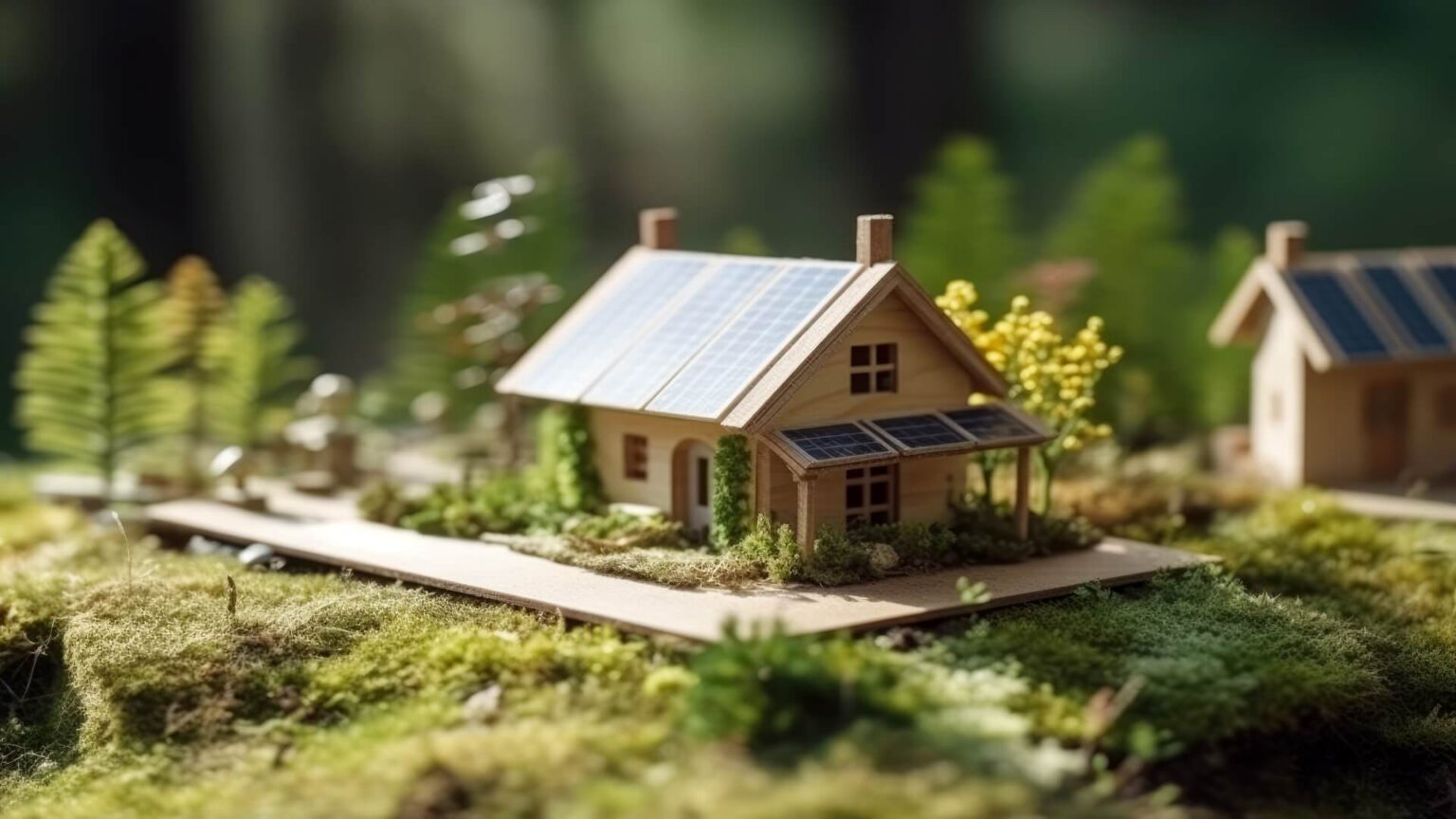The British property market is experiencing a profound shift towards sustainability, fundamentally altering how homes are valued, marketed, and sold across the nation. Environmental consciousness has evolved from a niche concern to a mainstream priority, driving significant changes in buyer preferences and forcing estate agencies to adapt their strategies accordingly. This green revolution is reshaping the entire property landscape, from energy-efficient new builds to retrofitted Victorian terraces.
Across the country, from London’s eco-conscious boroughs to estate agents in Norfolk highlighting the Northeast’s growing commitment to sustainable living, property professionals are witnessing unprecedented demand for environmentally responsible homes. This transformation reflects broader societal changes, government policy initiatives, and a growing awareness of climate change impacts on both personal finances and environmental wellbeing.
The Economics of Energy Efficiency
Energy Performance Certificates (EPCs) have become increasingly influential in property transactions, with higher-rated homes commanding premium prices and selling more quickly than their less efficient counterparts. Research indicates that properties with A or B energy ratings can achieve sale prices up to 14% higher than similar homes with lower ratings, whilst also spending significantly less time on the market.
The financial benefits extend beyond initial sale prices. Buyers are increasingly sophisticated in calculating long-term ownership costs, factoring in heating bills, maintenance expenses, and potential future regulatory requirements. Properties with poor energy efficiency face mounting challenges, as mortgage lenders begin incorporating energy ratings into lending decisions and insurance companies adjust premiums based on climate resilience factors.
Government incentives, including grants for heat pump installations and solar panel schemes, have made energy improvements more accessible to homeowners. These programmes not only reduce environmental impact but also enhance property values, creating compelling investment cases for sustainability upgrades.
The Rise of Green Marketing
Estate agencies are developing specialised marketing approaches to highlight environmental features and sustainability credentials. Property descriptions now routinely include detailed information about energy systems, insulation standards, renewable energy installations, and smart home technologies. Professional photography increasingly showcases solar panels, electric vehicle charging points, and sustainable materials as selling points rather than afterthoughts.
Virtual tours and marketing materials emphasise green features, with agents creating dedicated sections for environmental credentials. This approach recognises that sustainability has become a key differentiator in competitive markets, particularly among younger buyers who prioritise environmental responsibility alongside traditional factors such as location and price.
Digital marketing strategies now incorporate sustainability keywords and target environmentally conscious buyers through social media platforms and online property portals. This targeted approach helps agencies connect eco-friendly properties with buyers who specifically value green features, improving matching efficiency and reducing time to sale.
Regulatory Landscape and Compliance
The regulatory environment surrounding property sustainability continues to evolve, with implications for both estate agencies and their clients. The government’s commitment to achieving net-zero emissions by 2050 has introduced various requirements and incentives that directly impact property transactions.
Minimum Energy Efficiency Standards (MEES) regulations already restrict the rental of properties with EPC ratings below E, with further tightening expected. These regulations affect property values and marketability, requiring agencies to advise clients about compliance requirements and potential improvement costs.
Proposed reforms to EPCs may introduce more detailed assessments, including fabric efficiency ratings and smart technology integration. Estate agencies must stay informed about regulatory changes to provide accurate advice and avoid potential legal complications during transactions.
Building regulations increasingly emphasise sustainability standards for new developments, whilst planning authorities favour environmentally responsible designs. These trends influence which developments gain approval and how they perform in the market, requiring agencies to understand sustainability implications when advising developer clients.
Technology Integration and Smart Homes
Smart home technology has become synonymous with sustainability, offering homeowners sophisticated tools to monitor and reduce energy consumption. Estate agencies are highlighting these features as key selling points, recognising that tech-savvy buyers value both convenience and environmental benefits.
Internet of Things (IoT) devices enable real-time monitoring of energy usage, water consumption, and indoor air quality. These systems provide detailed data that homeowners can use to optimise efficiency and reduce environmental impact whilst also creating valuable marketing materials for future sales.
Home automation systems integrate heating, lighting, and appliance controls to maximise efficiency without compromising comfort. Properties featuring comprehensive smart home systems often achieve higher valuations and attract premium buyers who appreciate both technological innovation and environmental responsibility.
Battery storage systems and electric vehicle charging infrastructure are becoming standard features in many new developments and retrofit projects. These installations address practical concerns about renewable energy reliability whilst supporting the transition to electric transportation.
Buyer Demographics and Changing Preferences
Millennial and Generation Z buyers demonstrate particularly strong preferences for sustainable properties, often prioritising environmental features over traditional luxury amenities. This demographic shift is driving fundamental changes in property development and marketing strategies across the sector.
Research indicates that younger buyers are willing to pay premiums for homes with strong sustainability credentials, viewing them as better long-term investments. They often consider environmental impact alongside financial factors when making purchasing decisions, creating new opportunities for properties with genuine green credentials.
Professional couples and families increasingly seek homes that align with their environmental values, particularly in urban areas where air quality and green space access are primary concerns. This trend extends beyond energy efficiency to encompass sustainable materials, waste management systems, and biodiversity considerations.
Challenges and Opportunities
Estate agencies face significant challenges in adapting to sustainability trends, including the need for specialised knowledge and training. Agents must understand complex technical concepts related to energy systems, building materials, and environmental certifications to provide effective advice and marketing support.
The retrofitting market presents enormous opportunities, as millions of existing homes require efficiency improvements to meet future standards. Agencies that develop expertise in sustainable renovations and energy improvements can capture this growing market segment whilst providing valuable services to environmentally conscious clients.
Collaboration with sustainability specialists, including energy assessors, renewable technology installers, and environmental consultants, enables agencies to offer comprehensive services that address clients’ green aspirations. These partnerships create additional revenue streams whilst positioning agencies as leaders in sustainable property solutions.
Future Outlook
The trajectory towards greater sustainability in the property market appears irreversible, driven by environmental necessity, regulatory requirements, and changing consumer preferences. Estate agencies that embrace these trends early will gain competitive advantages, whilst those that resist risk becoming obsolete.
Emerging technologies, including advanced building materials, hydrogen heating systems, and integrated renewable energy solutions, will continue reshaping the market. Properties incorporating these innovations today are likely to maintain their appeal and value as sustainability standards continue rising.
Climate change impacts, including flooding, overheating, and extreme weather events, will increasingly influence property values and insurance availability. Agencies must develop expertise in climate resilience to serve clients effectively in this evolving landscape.
Conclusion
Sustainability has transformed from an optional extra to an essential consideration in modern property transactions. Estate agencies that recognise and respond to these trends will thrive in the green economy, whilst those that ignore environmental factors risk losing relevance in an increasingly eco-conscious market. The future belongs to agencies that can effectively bridge traditional property expertise with comprehensive understanding of sustainability principles, creating value for clients whilst contributing to environmental protection.

















